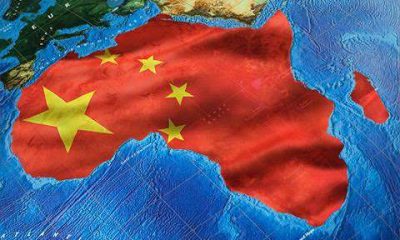Business
Nigerians lose 20,000 jobs over exit of multinational firms

Adebayo Obajemu
The scourge of unemployment, which has been rising in the past decade, is worsening, as the nation lost over 15 foreign businesses in the last three years to unfavourable environment, according to data from the Nigeria Employers’ Consultative Association (NECA).
The information added that over 20,000 workers had either divested or partially closed operations.
This development, according to NECA, has had dire consequences not only for organised businesses, but also for labour, government revenue and households.
Two weeks ago, a global brand, Procter & Gamble (P&G) announced its departure from Nigeria after GlaxoSmithKline had earlier announced its own departure. The company has 107,000 workforce globally, which now has been thrown into labour market.
Procter & Gambles, a leading consumer goods manufacturer also revealed plans to dissolve its on-ground operations in Nigeria and turn the country into an import market. The consumer giant stated that it is challenging to do business in Nigeria, as a dollar-dependent company and that the macroeconomic reality in Nigeria is responsible for its decision.
“So when you think about places like Nigeria and Argentina, it is difficult for us to operate because of the macroeconomic environment.”
GSK’s prime products are Sunlight, Dove Beauty bar, Lux soap, Pepsodent Toothpaste, vaseline, Lifebuoy, and Rexona products, amongst many others.The company said in a statement disclosedplans its to cease the commercialisation of its top medicines and vaccines in the country via GSK local operating companies and move to a third-party direct distribution model. The company added that it had stated its plans to end its distribution agreement in the coming months and appoint a third-party distributor in Nigeria to supply healthcare products.
Unilever on the other hand, has 755 workers according to Business Hallmark’s investigations.
Other global brands like French pharmaceutical titan, Sanofi-Aventis and Norwegian energy leader, Equinor had earlier in the year divested.
Earlier this year, one of the leading consumer goods companies, Unilever Nigeria Plc, announced plan to stop manufacturing some of its popular products, including Omo and Lux, in Nigeria, throws thousands of Nigerians into jobs market.
The manufacturer said it will exit two categories, Home Care and Skin Cleansing, which will affect the brands mentioned earlier.
Unilever, while explaining its winding down of operation, noted that the new model they are adopting would reduce exposure to devaluation and currency liquidity.
Sanofi-Aventi Nigeria, a leading French pharmaceutical company, recently decided to close its direct operations in Nigeria. The company planned to adopt a third-party model to distribute its products in Nigeria starting in 2024.
Already Sanofi, which employed handful of Nigerians has as of December 2023 a market capitalization of $119.57 billion. This makes Sanofi the world’s 114th most valuable company by market cap, according to Business Hallmark’s investigations.
The market capitalization, commonly called market cap, is the total market value of a publicly traded company’s outstanding shares and is commonly used to measure how much a company is worth.
The company explained that its new model will enable the commercialisation of Sanofi’s portfolio of medicines by a yet-to-be-named third-party distributor.
Bolt Food declared that it would discontinue its meal delivery service nationwide as from December 7, 2023. The corporation announced its decision to enhance its efficiency and optimise its resources. The firm said in a statement: “At this time, we have made the difficult decision to discontinue our food delivery operations in Nigeria due to business reasons.”
Equinor, a Norwegian energy corporation, declared that it had sold its Nigerian operations, including its stake in the Agbami oil field, to Chappal Energies, a Nigerian company. Equinor’s three-decade presence in Nigeria came to an end with this transaction. The agreement covers the sale of Equinor Nigeria Energy Company (ENEC), which owns a 53.85% interest in oil and gas lease OML 128—including a unitised 20.21% stake in Chevron-operated Agbami oil field.
Since its establishment in 2008, the Agbami field in Nigeria has produced more than one billion barrels of oil, and Equinor has played a significant role in the growth of the country’s oil and gas industry. The company is said to have sizable workforce, the exact number this medium could not ascertain.
Expressing NECA’s reservations, the Director-General, Adewale-Smatt Oyerinde, noted that the divestments would seriously affect the Federal Government’s efforts to attract Foreign Direct Investment (FDI).
This position was supported by Dr. Olufemi Omoyele of the Department of Entrepreneurship at Osun State University, who stated that “Tinubu is traveling around the globe looking for expatriates to come and invest in the country, while the big multinationals with long standing presence in the country are leaving! How will investments come when the whole world is watching the divestment of the multinationals and the reasons for their exit? This government should do first thing first, which is creation of enabling environment to do business with all infrastructural and legal protection.
Equally, Director-General of Manufacturers Association of Nigeria (MAN), Segun Ajayi-Kadir, lamented how toxic the country’s operating environment is, thus encouraging relocation.
He said the number of jobs lost in the manufacturing sector rose to the highest in three years in the first half of 2023.
The MAN boss submitted that the country needed investments to create more jobs, explaining that what shapes a country is decisive by leaders to positively improve the lot of the citizenry.
“We’ll treat fairly, respectfully and with care, meeting all applicable legal and consultation requirements” those were the sugar-coated, subtle but damning verdicts that employees of GlaxoSmithKline Consumer Nigeria Plc were subjected to after they were unceremoniously dumped into the unemployment market after the company announced its departure from Nigeria after 52 years and N25.382 billion in revenue in 2022 a few weeks ago. The exit of GSK according to Business Hallmark’s investigations has left 90,096 Nigerians jobless.
Dr. Omoyele said “You can imagine the social and economic implications of close to a hundred thousand people thrown into labour market! Aside the security implications, it shows that we as a country are not optimally utilizing our human capital for productivity. Government should provide incentives for these multinationals to stay.”
In a press statement signed by the Company Secretary, Frederick Ichekwai, GSK Consumer Nigeria Plc, noted for its wide array of prescription medicines and vaccines that many Nigerians have become accustomed to announced that it would be closing down its operations in Nigeria.
“In our published Q2 results, we disclosed that the GSK UK Group has informed GlaxoSmithKline Consumer Nigeria Plc of its strategic intent to cease commercialisation of its prescription medicines and vaccines in Nigeria through the GSK local operating companies and transition to a third-party direct distribution model for its pharmaceutical products.”
The multinational consulting firm, in a newly released report tagged ‘KPMG Global Economy Outlook report, H1 2023,’ said unemployment will continue to be a challenge due to the slower-than-required economic growth and the inability of the economy to absorb the 4-5 million new entrants into the Nigerian job market every year.
“Unemployment is expected to continue to be a major challenge in 2023 due to the limited investment by the private sector, low industrialisation and slower than required economic growth and consequently the inability of the economy to absorb the 4-5 million new entrants into the Nigerian job market every year. Little wonder the exit of GSK and other multinationals has continued to elicit concerns from many quarters.
Speaking on this issue recently, Dr. Obiora Madu, Chairman/CEO Multimix Group and a Consultant to Nigeria Export Promotion Council (NEPC) warned that the issues of foreign exchange volatility, lack of electricity, and a myriad of other challenges will continue to force many multinationals out of Nigeria and throwing many into the unemployment market.
“It didn’t start with GSK and if care is not taken, it won’t end with GSK. A few years ago, I had the privilege of discussing with the MD of Michelin Tyres in Port Harcourt, when we were conducting research on the impact of the Export Expansion Grant, and the man showed me a paper containing the cost of diesel.
He said in some of his factories, his machines are not connected to the national grid because of the sensitivity of those machines. And what he told me was, look at my diesel costs. And he said, if nothing happens, the end is in sight. Those were his exact words.
And exactly about four years or so, or five years, the end indeed came and they left. After they left, Dunlop followed. But Michelin is still in Nigeria, importing tires and selling them. They have also joined the foreign exchange madness. So that GSK is leaving, for me, it’s not news. It’s not news at all” he disclosed.
Also decrying the impact that the exit of the multinational will have on Nigeria’s unemployment index, the presidential candidate of the Labour Party in the 2023 election, Peter Obi lamented that the company’s reason for leaving Nigeria is even more disheartening as they no longer perceive a prospect for the country as a business environment that would be anchored on productivity.
“As a result, millions are losing their jobs and our poverty index is worsening, even though we’re already being perceived as the world’s poverty capital.
“The multinationals that are leaving our country have not only created jobs but have created immeasurable training that contributed immensely to our human capital development over the years.
“Now they are leaving our shores one after the other. GSK which has a manufacturing facility in Agbara, Ogun State on over 25 hectares of land had directly employed over 400 highly technical workers like pharmacists, microbiologists, biochemists, chemists, dentists, doctors etc, and also employed over 1000 other staff”, a post he put up X, the social media platform formerly known as Twitter read in part.
Similarly, Adebisi Olanrewaju Bakare, the National Coordinator of Pragmatic Shareholders Association expressed her unhappiness at the impact the exit would have on unemployment in the country.
“We are not happy about it. We feel very bad. But when you look at the challenges the company is also going through, we know we can’t force them to stay. Shortage of forex is really affecting their business even though the problem is not peculiar to them”.
On his part, the Director of the Centre for the Promotion of Private Enterprise (CPPE), Dr. Muda Yusuf pointed an accusing finger at the Central Bank of Nigeria (CBN) for the forex issue that is part of the reasons for the multinationals’ exit.
“The revaluation of foreign exchange liabilities amid the reforms in the forex market would predictably result in the current outcomes for companies with significant foreign exchange obligations”.
Amusa Oyedele, a research officer with Statistica, a data consulting firm told Business Hallmark that most of the companies that have exited or wound down their operations ” are either American or European companies which are finding it increasingly difficult to compete with some of the Asian companies because the model they adopted is no longer competitive.
Remember that this is no longer 70’s Nigeria, paradigm has since shifted. These European and American companies spend lots of money on their high end top brass, and this affect the bottom line. If you add the expensive lifestyle with the cost of production and labour, it will have a telling effect on their profit margin.
“But look at the Asian companies, especially China, they maintain modest lifestyle and they bring in cheap expatriates, some of them are even prisoners who are serving out their prison terms in the country.
“But Chinese know how to manage. They dodge taxes and involved in smart operation. Chinese govt supports Chinese company setting up abroad”.












